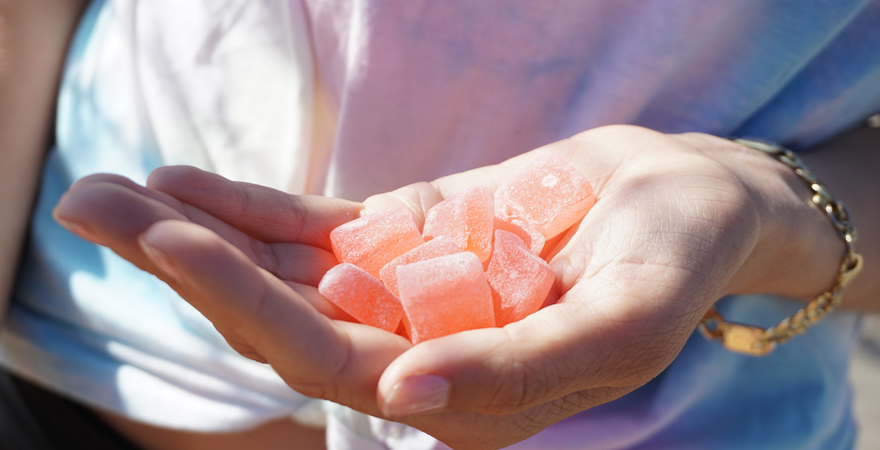The Health Benefits and Downsides of Edible THC
(What You Need to Know)

In recent years, edible THC has gained significant attention for its potential health benefits and unique consumption method. Tetrahydrocannabinol (THC) is the psychoactive compound found in cannabis, and when consumed in edible form, it offers a range of advantages. However, like any substance, it also has downsides that should be considered. In this article, we will explore the main health benefits and downsides of edible THC.
Health Benefits of Edible THC:
- Pain Management: One of the most well-known benefits of edible THC is its ability to provide relief from chronic pain. THC interacts with the body’s endocannabinoid system, helping to reduce pain and inflammation. This makes it a promising option for individuals suffering from conditions like arthritis, fibromyalgia, and neuropathic pain.
- Stress and Anxiety Relief: Many people turn to edible THC to alleviate symptoms of stress and anxiety. THC can have a calming effect on the mind and body, promoting relaxation and reducing feelings of tension. However, it’s important to note that while some individuals find relief, others may experience heightened anxiety as a side effect.
- Nausea and Vomiting Control: Edible THC has been used to manage nausea and vomiting, particularly in patients undergoing chemotherapy or those with conditions such as HIV/AIDS. Its anti-nausea properties can help improve the quality of life for individuals dealing with these issues.
- Appetite Stimulation: THC is known for its ability to stimulate appetite, often referred to as the “munchies.” This can be beneficial for individuals who have appetite loss due to medical conditions like cancer or eating disorders.
- Sleep Aid: Some people use edible THC to improve sleep quality and combat insomnia. It can help induce drowsiness and promote a more restful night’s sleep.
- Epilepsy Management: There is ongoing research into the potential of THC, specifically a pharmaceutical form called Epidiolex, in reducing seizures in patients with certain forms of epilepsy. While this is a promising development, it is essential to consult with a healthcare professional before using THC for epilepsy management.
Downsides of Edible THC
- Delayed Onset and Duration: Unlike smoking or vaping, the effects of edible THC take longer to kick in, often around 30 minutes to 2 hours. This delayed onset can lead to unintentional overconsumption if users do not exercise caution. Additionally, the effects can last for several hours, which may not be suitable for everyone.
- Dosing Challenges: It can be challenging to determine the appropriate dosage of edible THC, especially for beginners. Variability in potency among products and individual tolerance levels can result in unexpected and sometimes uncomfortable experiences, including anxiety, paranoia, and hallucinations.
- Lack of Regulation: The regulation of edible THC products varies from one region to another. In some places, there may be limited oversight, leading to inconsistencies in product quality and safety. It’s crucial to purchase from reputable sources and ensure compliance with local laws.
- Potential for Dependence: Regular use of THC, whether through edibles or other methods, can lead to dependence and addiction in some individuals. It’s essential to use THC responsibly and seek help if you believe you may have developed a dependence.
- Cognitive Impairment: Excessive consumption of edible THC can impair cognitive function, affecting memory, attention, and decision-making. It is not advisable to operate heavy machinery or drive while under the influence.
In conclusion, edible THC offers several potential health benefits, including pain management, stress relief, and appetite stimulation. However, it also comes with downsides, such as delayed onset, dosing challenges, and the potential for dependence. Individuals considering edible THC should weigh the pros and cons carefully, consult with healthcare professionals, and use it responsibly in accordance with local laws and regulations to maximize its potential benefits while minimizing risks.
